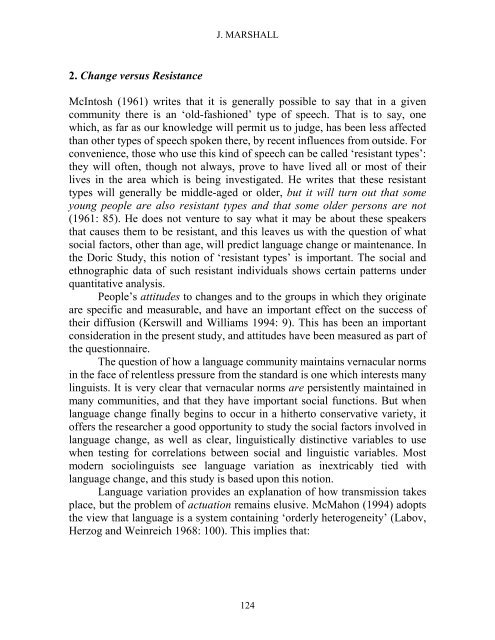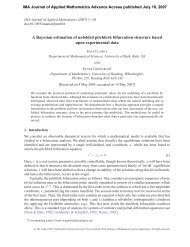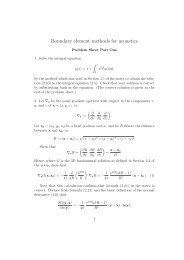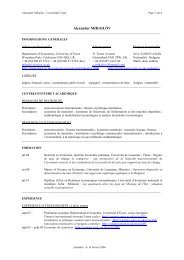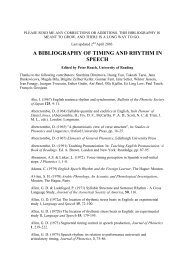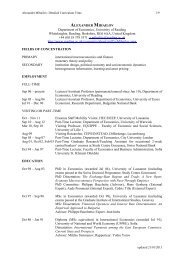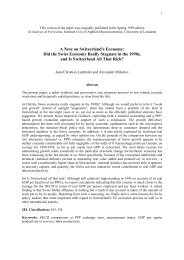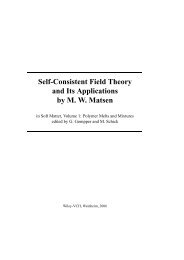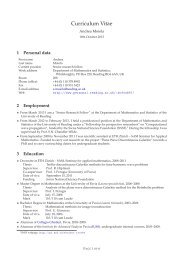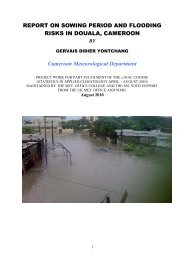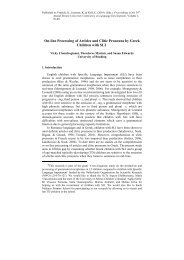Reading Working Papers in Linguistics 4 (2000) - The University of ...
Reading Working Papers in Linguistics 4 (2000) - The University of ...
Reading Working Papers in Linguistics 4 (2000) - The University of ...
You also want an ePaper? Increase the reach of your titles
YUMPU automatically turns print PDFs into web optimized ePapers that Google loves.
J. MARSHALL<br />
2. Change versus Resistance<br />
McIntosh (1961) writes that it is generally possible to say that <strong>in</strong> a given<br />
community there is an ‘old-fashioned’ type <strong>of</strong> speech. That is to say, one<br />
which, as far as our knowledge will permit us to judge, has been less affected<br />
than other types <strong>of</strong> speech spoken there, by recent <strong>in</strong>fluences from outside. For<br />
convenience, those who use this k<strong>in</strong>d <strong>of</strong> speech can be called ‘resistant types’:<br />
they will <strong>of</strong>ten, though not always, prove to have lived all or most <strong>of</strong> their<br />
lives <strong>in</strong> the area which is be<strong>in</strong>g <strong>in</strong>vestigated. He writes that these resistant<br />
types will generally be middle-aged or older, but it will turn out that some<br />
young people are also resistant types and that some older persons are not<br />
(1961: 85). He does not venture to say what it may be about these speakers<br />
that causes them to be resistant, and this leaves us with the question <strong>of</strong> what<br />
social factors, other than age, will predict language change or ma<strong>in</strong>tenance. In<br />
the Doric Study, this notion <strong>of</strong> ‘resistant types’ is important. <strong>The</strong> social and<br />
ethnographic data <strong>of</strong> such resistant <strong>in</strong>dividuals shows certa<strong>in</strong> patterns under<br />
quantitative analysis.<br />
People’s attitudes to changes and to the groups <strong>in</strong> which they orig<strong>in</strong>ate<br />
are specific and measurable, and have an important effect on the success <strong>of</strong><br />
their diffusion (Kerswill and Williams 1994: 9). This has been an important<br />
consideration <strong>in</strong> the present study, and attitudes have been measured as part <strong>of</strong><br />
the questionnaire.<br />
<strong>The</strong> question <strong>of</strong> how a language community ma<strong>in</strong>ta<strong>in</strong>s vernacular norms<br />
<strong>in</strong> the face <strong>of</strong> relentless pressure from the standard is one which <strong>in</strong>terests many<br />
l<strong>in</strong>guists. It is very clear that vernacular norms are persistently ma<strong>in</strong>ta<strong>in</strong>ed <strong>in</strong><br />
many communities, and that they have important social functions. But when<br />
language change f<strong>in</strong>ally beg<strong>in</strong>s to occur <strong>in</strong> a hitherto conservative variety, it<br />
<strong>of</strong>fers the researcher a good opportunity to study the social factors <strong>in</strong>volved <strong>in</strong><br />
language change, as well as clear, l<strong>in</strong>guistically dist<strong>in</strong>ctive variables to use<br />
when test<strong>in</strong>g for correlations between social and l<strong>in</strong>guistic variables. Most<br />
modern sociol<strong>in</strong>guists see language variation as <strong>in</strong>extricably tied with<br />
language change, and this study is based upon this notion.<br />
Language variation provides an explanation <strong>of</strong> how transmission takes<br />
place, but the problem <strong>of</strong> actuation rema<strong>in</strong>s elusive. McMahon (1994) adopts<br />
the view that language is a system conta<strong>in</strong><strong>in</strong>g ‘orderly heterogeneity’ (Labov,<br />
Herzog and We<strong>in</strong>reich 1968: 100). This implies that:<br />
124


